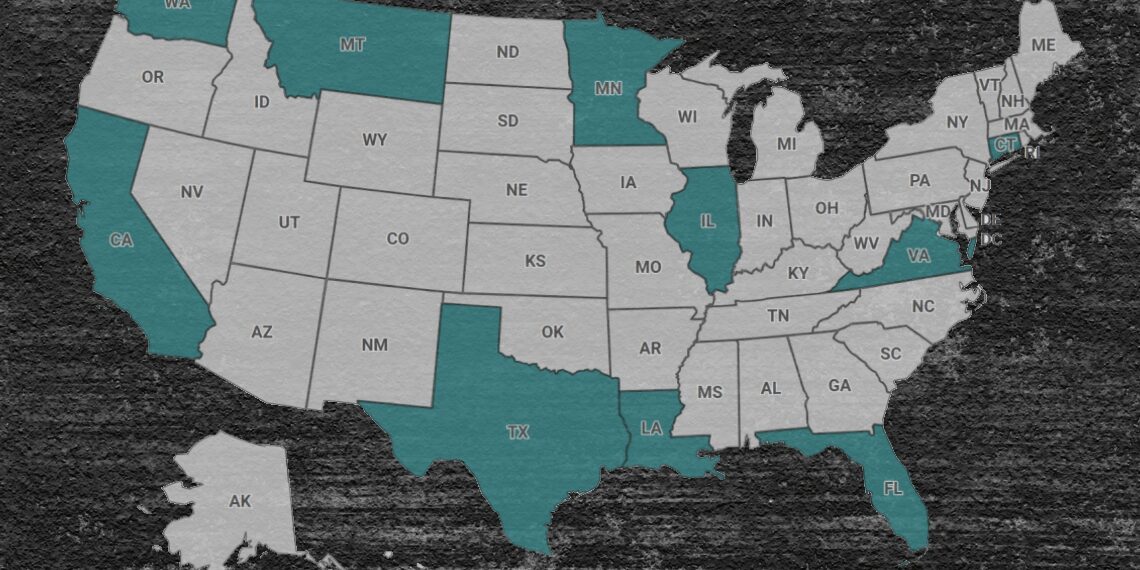Regulating artificial intelligence (AI) in the U.S. has gained significant momentum at the state level, surpassing the federal government’s efforts in recent years. In an unexpected development, state legislatures introduced a staggering 440 percent more AI-related bills this year compared to 2022, demonstrating their proactive approach to AI.
In 2023 so far, a combined total of 191 AI-related bills were introduced by various states. This exceeds the cumulative efforts of the past two years. This trend closely aligns with state actions on data privacy legislation, where they also have surged ahead of the federal government’s progress, and where the federal government still remains without a simple national data privacy law.
However, despite nearly 200 AI-related bills proposed at the state level, only 29 managed to move through at least one legislative chamber. Out of those 29 bills, only 14 became law, indicating the complexity and challenges associated with shaping AI legislation.
Ten states, representing both Democratic and GOP interests, have successfully passed AI-related bills. These states are California, Connecticut, Florida, Illinois, Louisiana, Minnesota, Montana, Texas, Virginia, and Washington. Their efforts signify the widespread recognition of the importance of regulating AI within their respective jurisdictions.
California, in addition to its proactive stance toward technology, enacted legislation mandating a comprehensive survey to evaluate the utilization of high-risk AI within the state. This approach demonstrates California’s commitment to understanding the implications and potential risks associated with AI deployment.
Increasingly, state legislatures are leading the way in shaping AI policy, recognizing the urgency to address the unique public challenges presented by this rapidly advancing technology. As AI continues to transform various industries, it is crucial for lawmakers to embrace balanced and informed regulation to protect the interests of citizens and ensure responsible AI development.
The whytry.ai article you just read is a brief synopsis; the original article can be found here: Read the Full Article…





